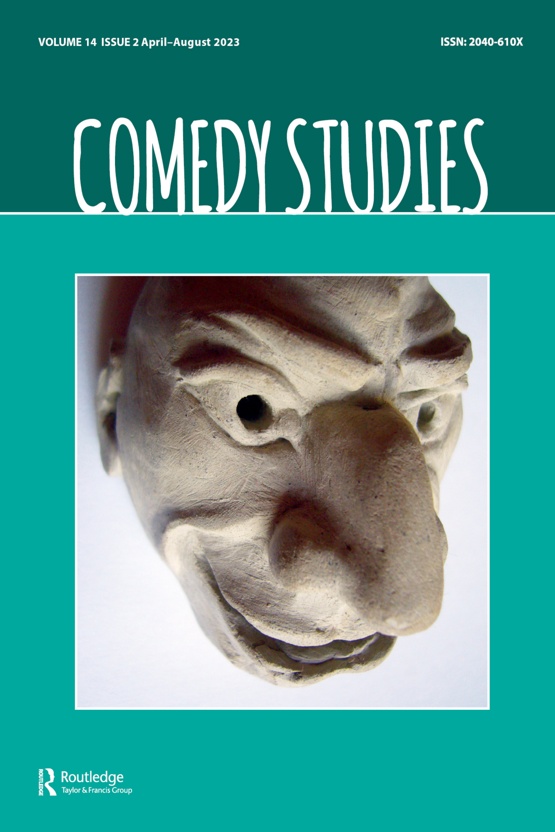Submit a Manuscript to the Journal
Comedy Studies
For a Special Issue on
Early Modern Funny Business
Abstract deadline
08 October 2024
Manuscript deadline
30 April 2025

Special Issue Editor(s)
Andrew McConnell Stott,
University of Southern California
[email protected]
Early Modern Funny Business
Comedy today is a billion-dollar industry built on a massive infrastructure of platforms, venues, and media whose segmented marketplace offers something for everyone. This entertainment-economic system has deep roots: it has long been a part of the Western cultural industries. This special issues seeks to explore the history of the professional, institutional, and economic life of comedy in the early modern period as the seeds of modern western economic systems began to take root. What did it mean to be a professional comedian in the early modern period and long eighteenth century? Was comedy vocational? What was the nature of comic apprenticeship? How did the entertainment industry encourage specialization? How was comedy enmeshed in schemas of exchange? What was the value of comedy to early modern consumers?
This special section of Comedy Studies will focus on the business of comedy in the sixteenth, seventeenth, and eighteenth centuries. From the first permanent playhouses to the consolidation of the patent theatre system, and from jest books to the emergence of the comic novel, our focus will be on the “industry” of the early modern entertainment industry, examining the ways in which comedy (inclusive of performance, writing, and visual culture), might be viewed as a business. Topics might include (but not be limited to):
- Professional comedians: writers and performers, clowns, jesters and fools;
- The economics of comedy, including theatrical economies, the economics of satire, the rise of the novel, and print and visual culture;
- The place of comedy in the entertainment industry, including theatrical competition, repertoire, the composition of acting companies, and the emergence of new forms, such as pantomime and commedia;
- Early modern celebrity;
- Audiences and consumers: consumer behavior, criticism and feedback, audience share and distribution, popular demand;
- The economics of liminal spaces, including fairs, carnivals, festivals, and side shows;
- Bootleg, contraband, illicit, and unlicensed markets;
- Comedy and capitalism: comedy in or about emergent economic systems;
- Economic alternatives: sedition, rebellion, and/or dissent.
Looking to Publish your Research?
Find out how to publish your research open access with Taylor & Francis Group.
Choose open accessSubmission Instructions
Please submit abstracts of no more than 500 words to Andrew McConnell Stott ([email protected]) by 31 October 2024. Invited articles of 6000-8000 words will be due in April 2025 and will be peer reviewed.
Articles will be published on-line as they are accepted. The special section will be published as a set in an issue when complete. This is expected to take place in 2026.